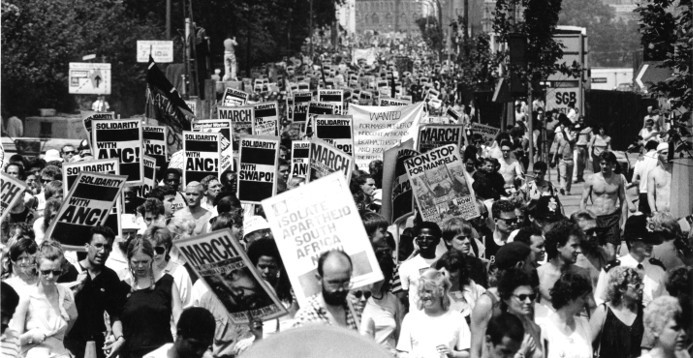
The vibrant economic landscape of North America underwent a seismic shift during the 1980s, marking the beginning of a deliberate dismantling of working-class prosperity that continues to reverberate today.
As factories shuttered their doors in the early 1980s, millions of manufacturing jobs vanished, devastating industrial communities across the continent. This widespread deindustrialization wasn't merely an inevitable economic evolution - it stemmed from calculated policy decisions guided by Milton Friedman's free market ideology that championed deregulation and limited government intervention.
Federal Reserve Chairman Paul Volcker delivered perhaps the most crushing blow by raising interest rates to an unprecedented 21%. This extreme measure triggered an economic crisis that disproportionately impacted blue-collar workers and small businesses while benefiting financial speculators.
The decade saw organized labor face direct attacks, exemplified by President Reagan's watershed decision to fire striking air traffic controllers in 1981. This action emboldened private companies to take increasingly aggressive stances against unions, weakening workers' collective bargaining power.
Meanwhile, the dismantling of banking regulations opened the floodgates for risky financial speculation, leading to disasters like the Savings and Loans crisis. These policy shifts initiated a massive transfer of wealth from workers to the affluent - an estimated $50 trillion in lost wages over the following four decades.
The results transformed American society: rising income inequality, recurring financial instability, and the steady erosion of worker protections became the new normal. While often remembered through rose-tinted glasses, the 1980s marked a calculated restructuring of the economy that deliberately undermined working-class stability and prosperity.
The decade's legacy lives on in today's widening wealth gap and diminished economic mobility - not as unintended consequences, but as the predictable results of policies designed to reshape society's economic foundations.